Are you looking to enhance your stakeholder engagement strategy? Crafting an effective letter can be a powerful way to connect with your stakeholders and convey your vision. In this article, we'll explore essential elements that make your letter resonate, ensuring your message is clear and engaging. So, stick around as we dive into tips and templates that will elevate your communications!
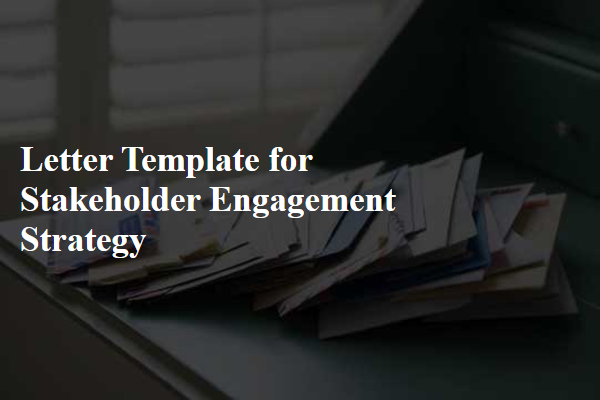
Personalized Greeting and Introduction
Engaging stakeholders effectively is crucial for any organization's success, particularly in projects undertaken in dynamic environments like technology development or community initiatives. Personalized greetings create immediate rapport, leading to enhanced communication and collaboration. The introduction should outline the project's goals, timeline, and potential impact, tailored specifically to each stakeholder's interests and concerns. By acknowledging their unique contributions and expertise, organizations can foster a sense of ownership and commitment among stakeholders, creating a more supportive atmosphere for achieving shared objectives and navigating challenges.
Clear Purpose and Objectives
A well-crafted stakeholder engagement strategy establishes a clear purpose and specific objectives that guide interactions with various stakeholders, such as community members, government agencies, and investors. For instance, in a renewable energy project, the primary purpose may be to foster sustainable community development while addressing concerns about environmental impact. Objectives could include achieving a 70% approval rate from local residents by the project's initiation phase, securing partnerships with at least three environmental advocacy organizations by the middle of the project timeline, and conducting quarterly feedback sessions to gauge stakeholder sentiments and adapt strategies accordingly. Engaging stakeholders effectively ensures that their insights drive project adaptations, enhancing overall project success and community trust.
Stakeholder Importance and Role
Effective stakeholder engagement strategies prioritize understanding stakeholder importance and roles within organizations. Key stakeholders include customers, employees, suppliers, investors, and regulatory bodies, each contributing to the overall success of the business ecosystem. For instance, customer feedback can directly influence product development, enhancing market satisfaction. Employees serve as brand ambassadors and are critical to maintaining workplace morale and productivity metrics. Suppliers ensure the seamless flow of materials, affecting supply chain efficiency and operational costs. Investors provide the necessary capital for growth initiatives, impacting financial stability and expansion potential. Regulatory bodies uphold compliance standards, shaping operational practices in various industries. Recognizing and delineating these roles allows organizations to tailor their engagement tactics effectively and foster collaborative relationships that drive mutual value.
Engagement Methods and Frequency
Successful stakeholder engagement strategies incorporate various methods tailored to different audience needs. Utilization of surveys enables organizations to capture quantitative feedback, while focus groups facilitate qualitative discussions among key stakeholders in targeted demographics. Public forums create opportunities for civic participation, allowing community members to voice their perspectives on relevant issues. Regular newsletters, distributed quarterly, keep stakeholders informed about project developments. Social media platforms, engaging several times a week, foster real-time interactions and updates. One-on-one meetings with high-priority stakeholders enhance relationship-building and ensure alignment with strategic goals. Ad hoc meetings, scheduled as needed in response to project milestones or emerging concerns, provide flexibility to address urgent stakeholder feedback efficiently.
Contact Details and Call to Action
Engaging stakeholders is crucial for successful project implementation and communication. Effective contact details should include full names, titles, phone numbers, and email addresses for key individuals involved, ensuring accessibility. A clear call to action is essential, prompting stakeholders to participate actively through surveys, feedback sessions, or information meetings. By specifying timelines for responses or engagement efforts, stakeholders remain informed and motivated. Highlighting the importance of their input on project outcomes fosters a sense of ownership and collaboration across diverse groups. Detailed documentation helps in building trust through transparency and accountability.

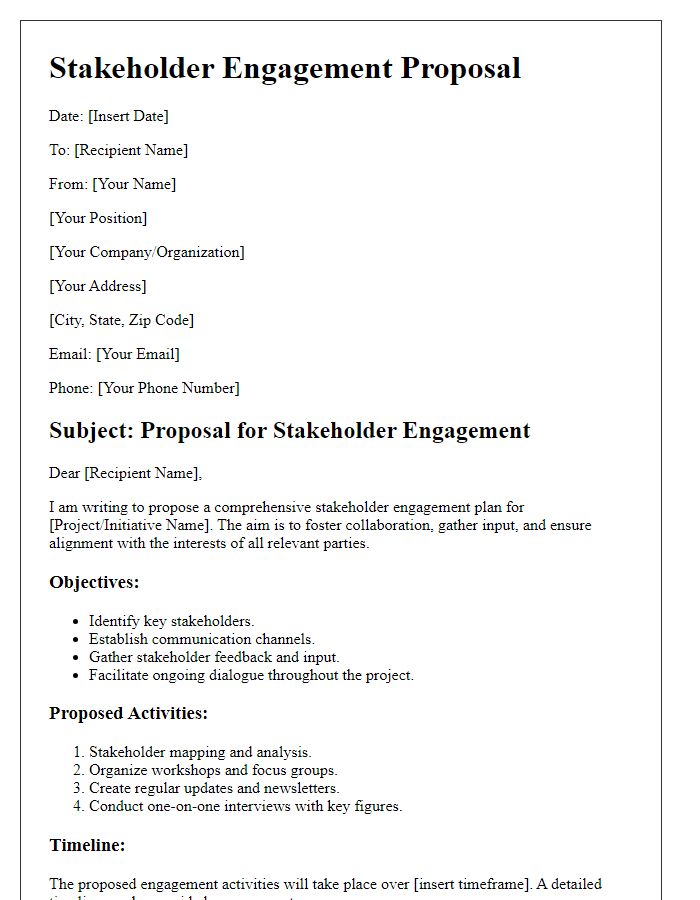
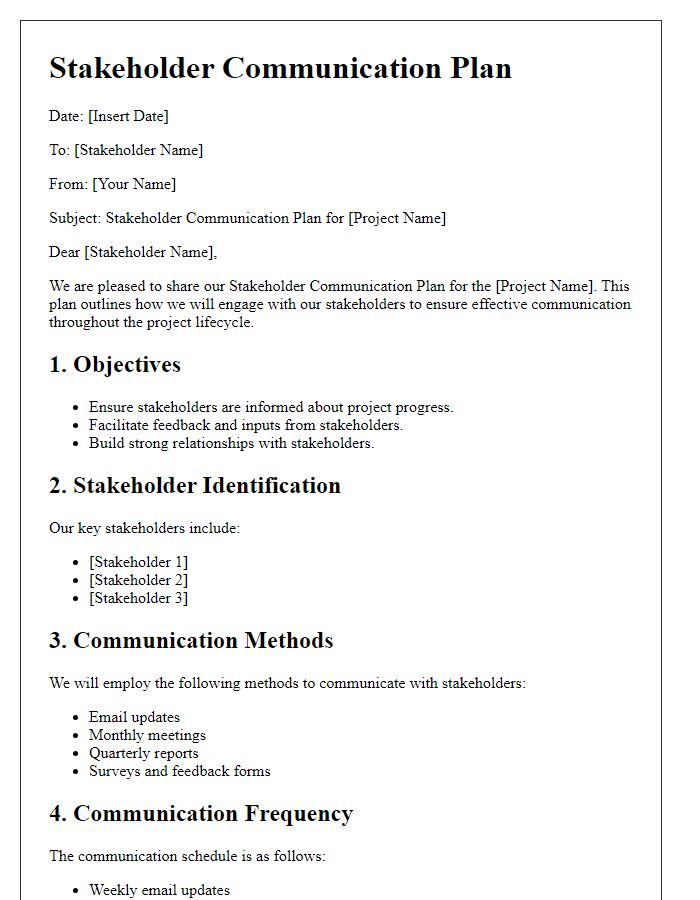
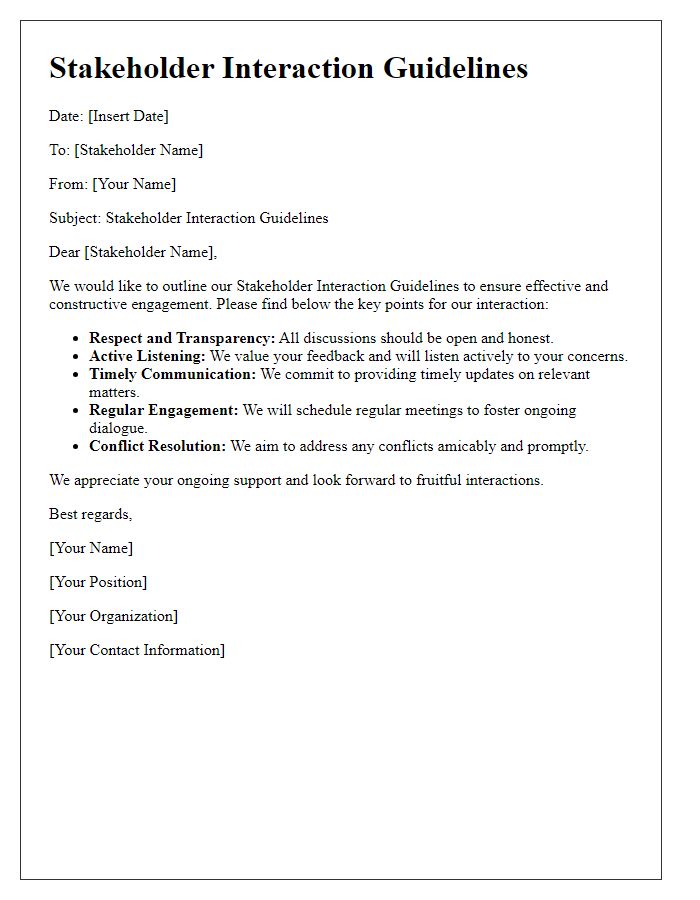
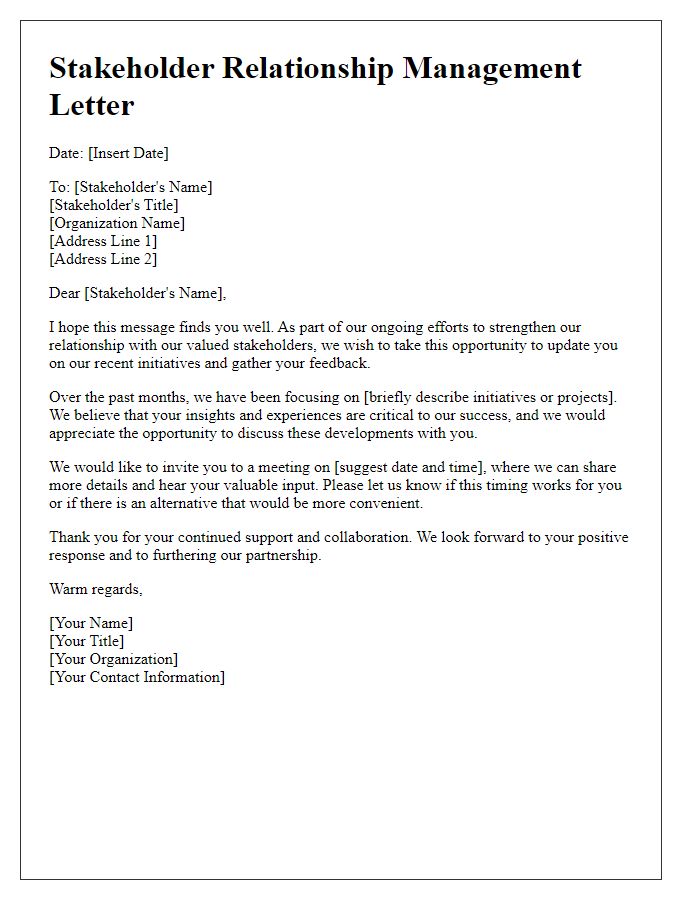
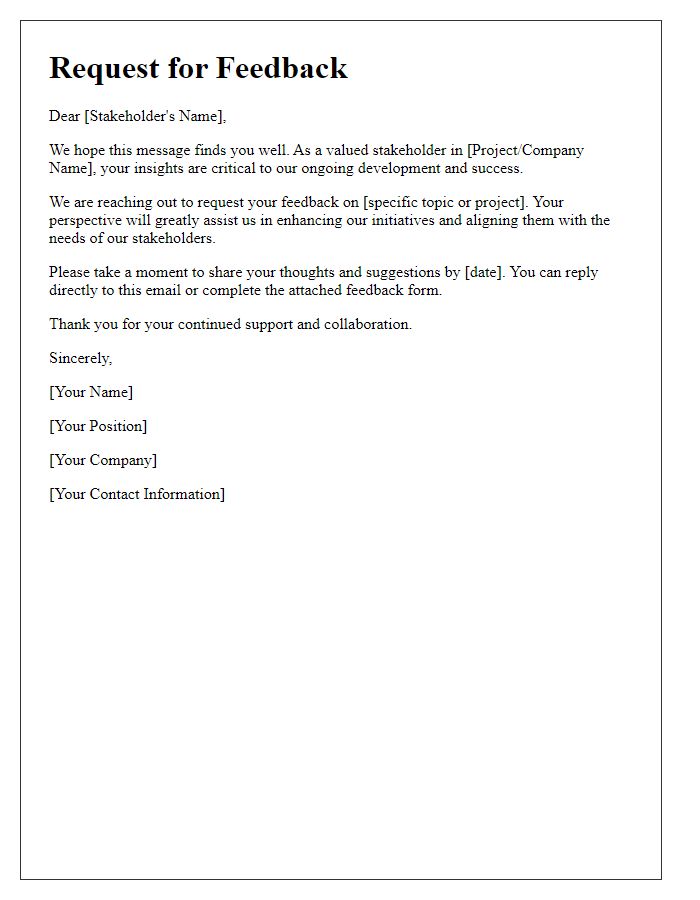
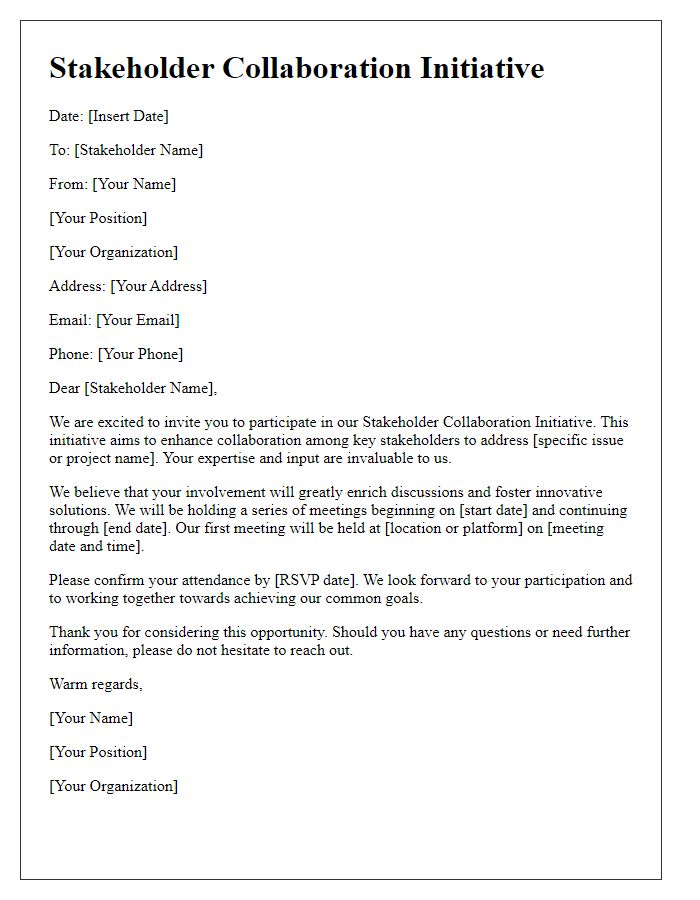
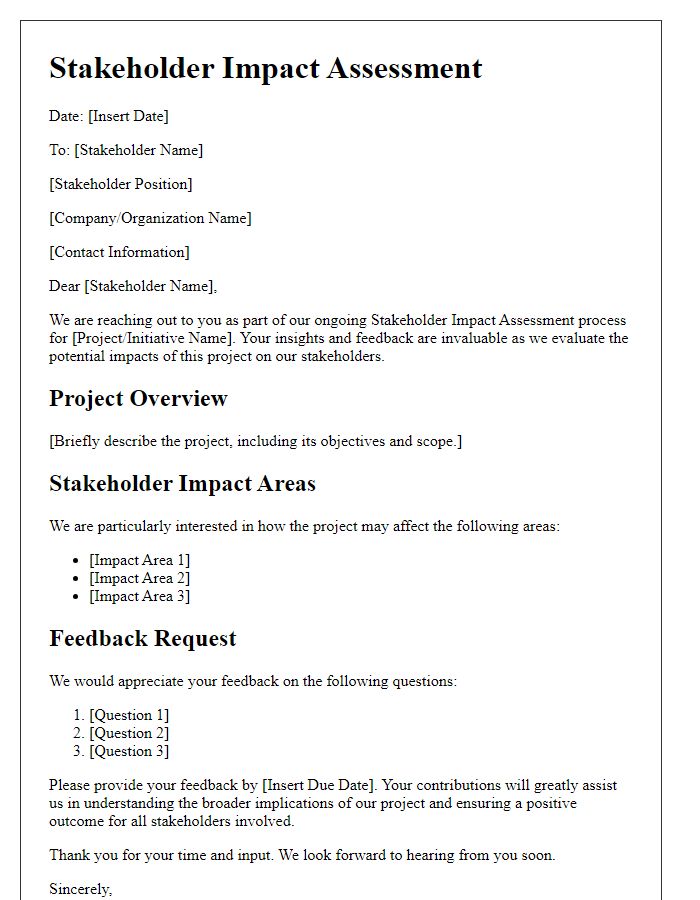
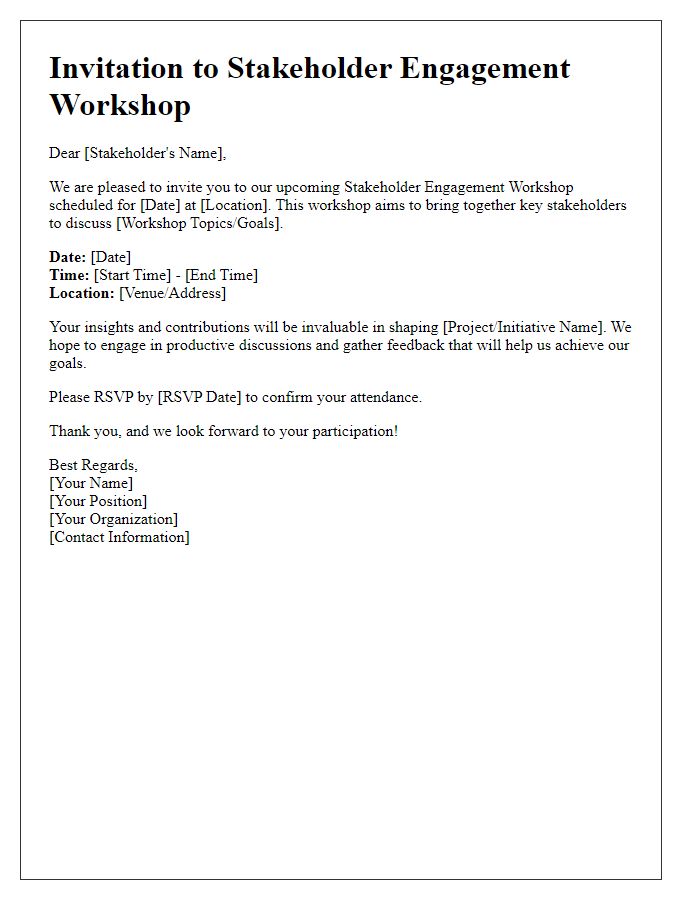
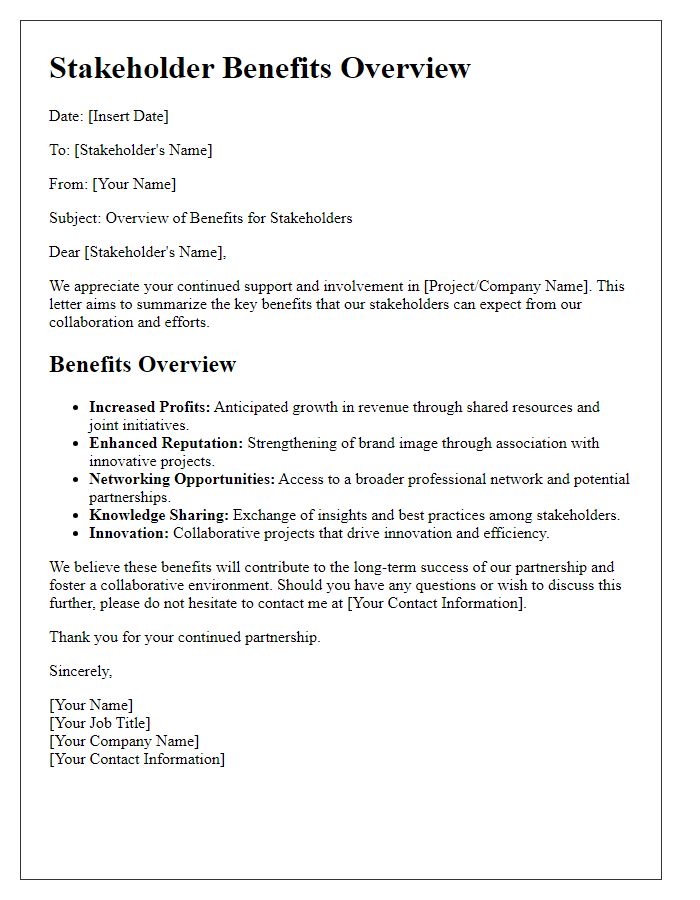
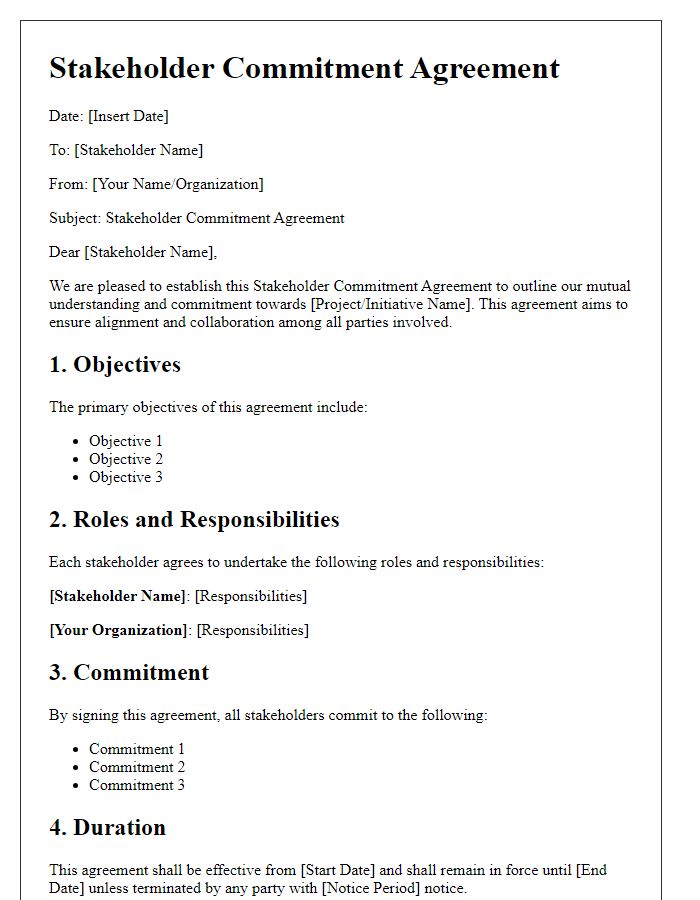

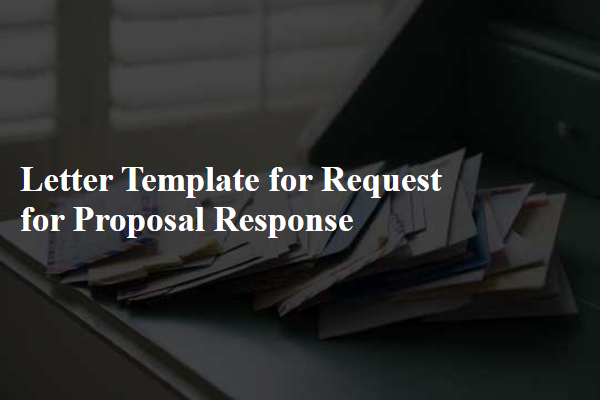
Comments